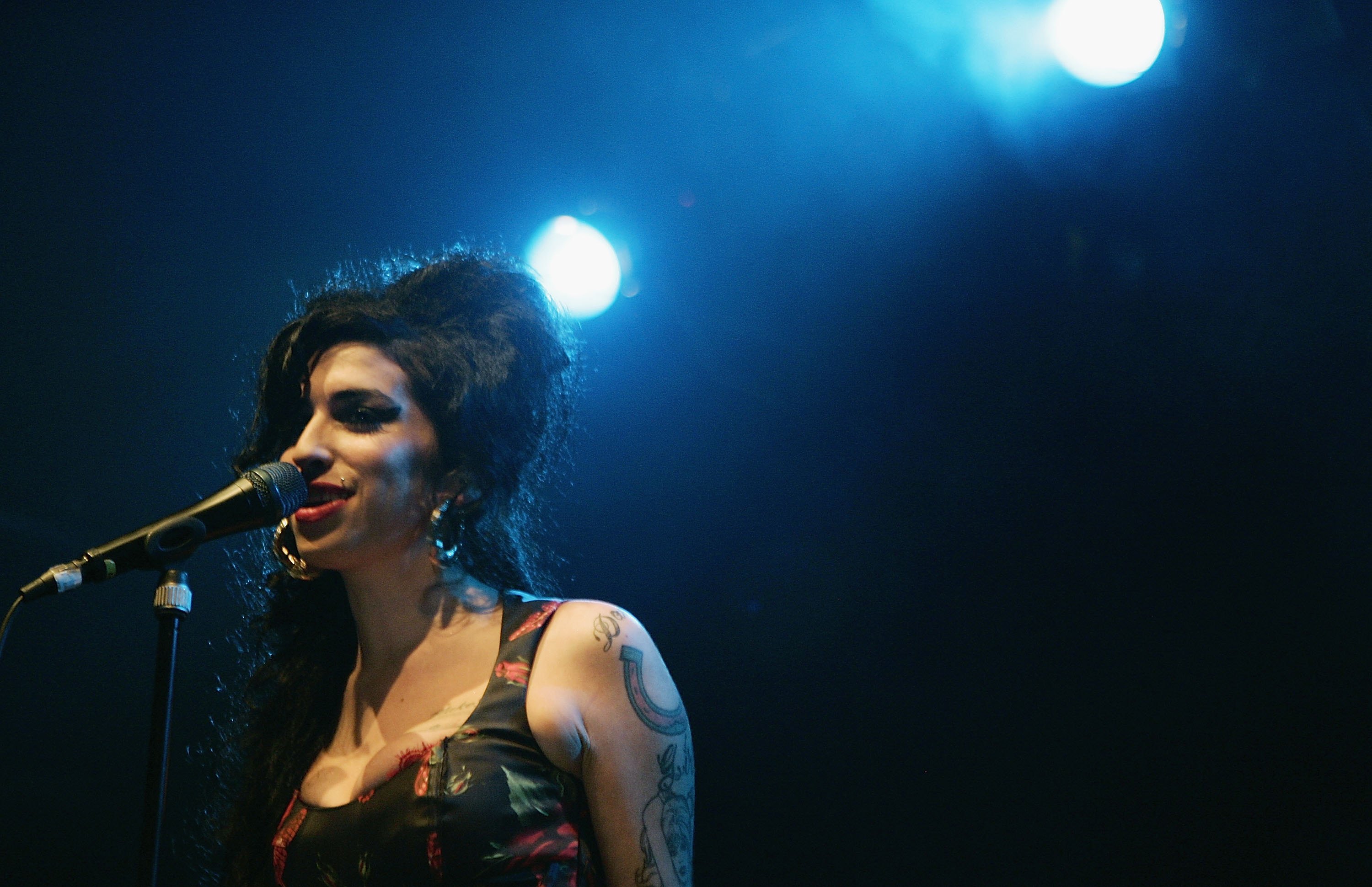You could be forgiven for thinking that it was a much-beloved member of the royal family who died ten years ago today — Princess Diana, perhaps, whose posthumous 60th birthday we recently celebrated. (This one also has her very own statue, a bronze one in her stomping ground of Camden Town.) This Jewish princess had similar problems with bulimia, and with the paparazzi, but she was a pop star, only 27 when she died, on paper with not much mainstream appeal.
Yet many of us were — and are — obsessed with Amy Winehouse. She released only two albums in the space of three years, but her ghost still bestrides pop music like a tiny, tattooed colossus.
When we idolise an artist, it’s tempting to make their sorrows about us. How could they shine such a searing spotlight on our darkest desires and disappointments if they can’t literally read our minds? It’s a schoolgirl error, starting harmlessly with the virginal urgings of David Cassidy — and ending up in the full-on emotional maelstrom of Winehouse’s Back To Black. Anyone who has experienced heartbreak since 2006 will know the funereal opening notes of the title track as surely as they know their own tear-stained face in the mirror.
The human being was certainly greater than the paper-thin tragic diva clichés being peddled about her today
I’d be lying if I said I didn’t feel something for Amy that went beyond the obvious admiration of a music-lover for a great musician. (It never feels pretentious to call her a ‘musician’ in the way it might other singers, simply because of the musicality and substance of her singing; though her image was highly-stylised, she could have sported a twinset and pearls and still had the same level of appeal and record sales.) When my friend who worked at a gossip column called me, she said ‘Are you sitting down?’ because she knew how much I adored her. While making a documentary about my father’s long and agonising death from mesothelioma, a lovely doctor explained his autopsy to me; after the cameras stopped rolling, she asked me if I would be interested to see her teenage niece sing in a small club soon. With characteristic lack of journalistic competence I demurred — of course it was Amy. Halfway between her death and now, my son Jack, a musician also over-fond of drugs and self-harming, killed himself at the age of 29. Sometimes I wonder how much punishment the human heart can take and still keep going — not just beating, but grabbing at more, if that’s what it takes to fully live.
Creating something great from sorrow helps. But to recognise this, we must respect the exceptionally talented amongst us and not attempt to cut them down to size — perhaps with the best of intentions, out of empathy, perhaps not, out of subconscious envy — in order to make them more like us. Famous women generally (and especially singers, as far apart as Piaf, Joplin and Callas) are often ostensibly pitied by lesser mortals.
‘She only wanted to be loved!’ we bleat of every ‘troubled’ idol from Marilyn to Britney. But no, she didn’t only want that — she had ambition, just as male stars do, and far from being the agent of her destruction it may have made her time on earth much more enjoyable than settling for some humdrum existence. For every Lana Turner who fell into fame, there were a thousand — Marilyn most of all — who pursued it aggressively for the simple and sensible reason that it was the best way to get a better life.
It’s interesting that we tend not to portray, say, male rappers who live fast and die violently as pathetic creatures in search of love; men are trouble, and girls love a Bad Boy — but women are troubled — and need only the love of a Good Man to save them. It’s the difference between being a player and being pathetic.
That women of great talent might find their Faustian pact a price worth paying disturbs those of us who have a nagging suspicion that we’ve traded a shot at immortality for a quiet life. The music critic and confidante of Maria Callas, John Ardoin, answered the question ‘Was it worth it?’ with ‘There are times when there are people… certain people who are blessed, and cursed, with an extraordinary gift, in which the gift is almost greater than the human being.’ Amy had this. But additionally, the human being was certainly greater than the paper-thin tragic diva clichés being peddled about her today. Those who knew her well talk about how easygoing she was to work with because she was so secure in her ability, about how generous she was with everything from her time to her talent and above all how funny she was — a joker gone wild. ‘She was so normal…’ comes up over and again, and she was able to be ‘ordinary’ because her extreme talent meant that she never had to try in a world of narcissists with negligible talent jostling for our attention.
Her influence has been noted on singers from the sublime (Lana Del Ray) to the ridiculous (Bruno Mars) while in 2011 the New York Daily News suggested that the success of British female artists in the USA could be down to her death. As Keith Caulfield of Billboard starkly put it ‘Because of Amy, or the lack thereof, the marketplace was able to get singers like Adele, Estelle and Duffy… now the new ones, like Eliza Doolittle…’ But no, not like Eliza Doolittle. Not like anyone except Amy Winehouse, whose like we shall never see again — and victor, not victim, because she did the thing in life that she loved most.
She reached the peak of her potential at an age when most people are finally realising that they are going to spend their short time on earth doing something that they are not particularly fond of; her life was the opposite of wasted — it was completely fulfilled, albeit too soon. She didn’t want only to be loved — she wanted to be listened to, and she was, and always will be. So she won — loser and still champ.








Comments